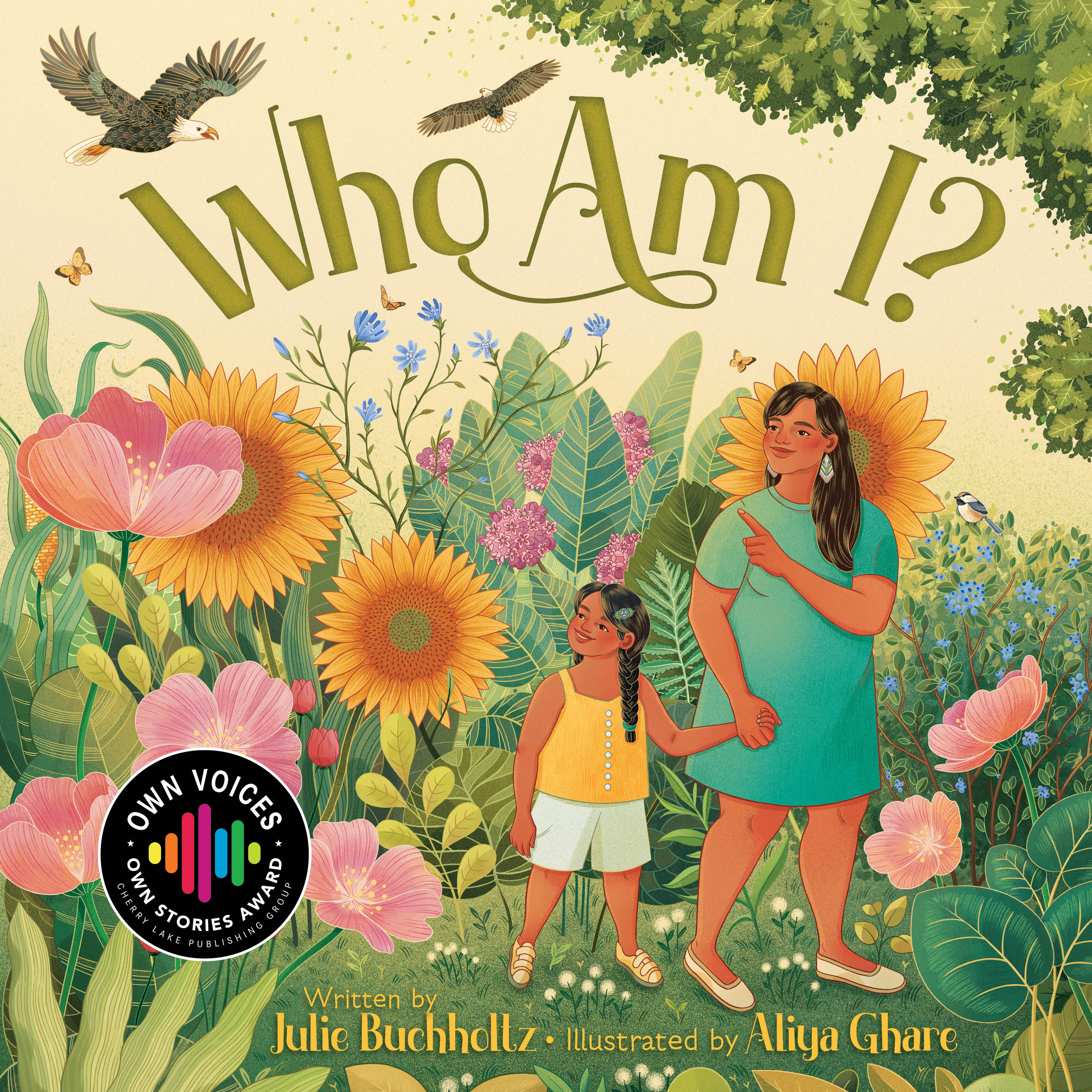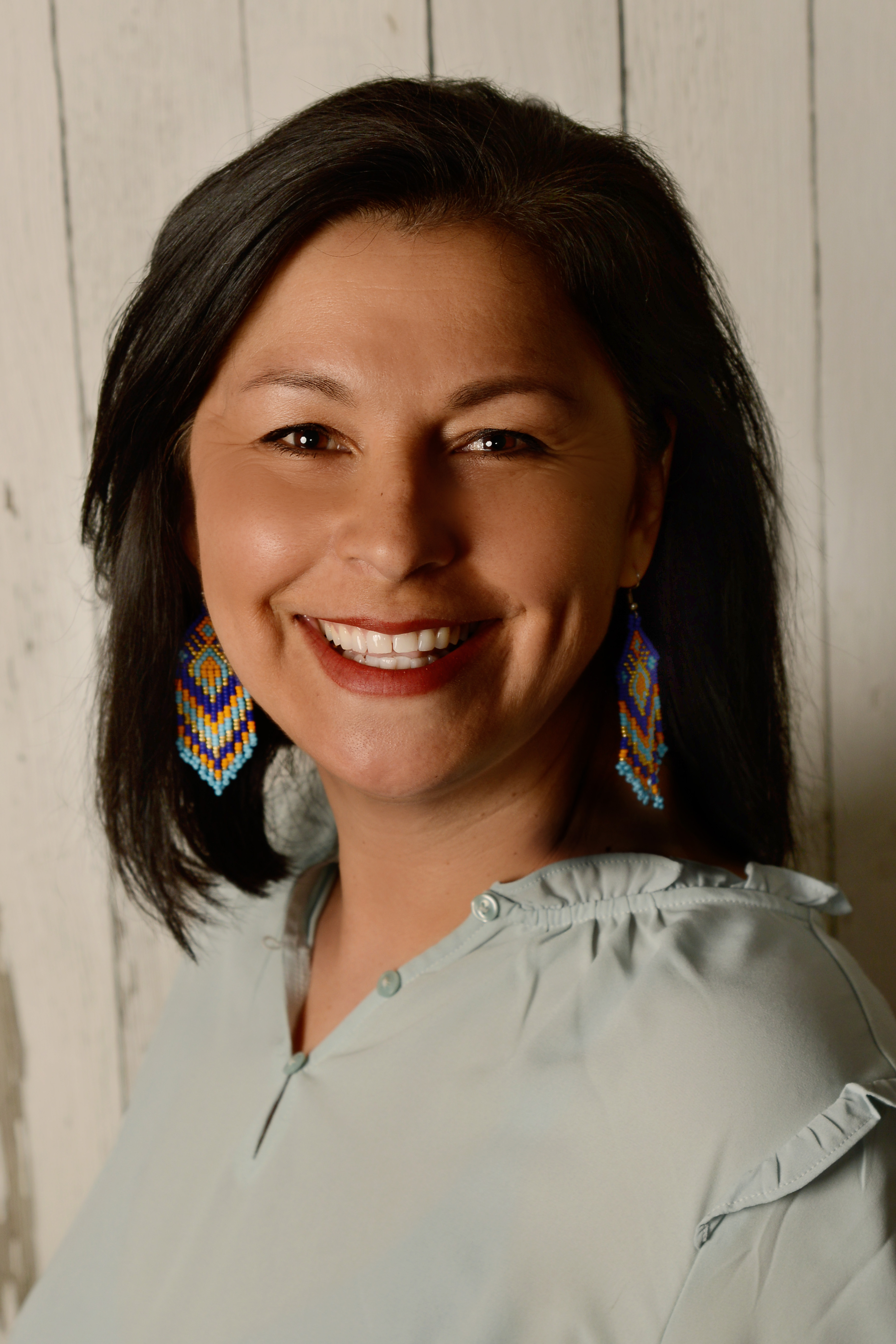
- Details
- By Stacy Thacker
Julie Buchholtz didn’t plan for an internet search to change her life, but it did.
Buchholtz, a member of the Bay Mills Indian Tribe, dreamed of being a published author. She has always been a writer, at least to her children. When they were growing up, she would write them stories and enjoyed creating new adventures to take her children on.
Now, she has the opportunity to share her newest story, “Who Am I?” with a larger audience when her first children’s book releases this July.
Buchholtz’s journey started in 2021 when she was playing with the idea of finding a publisher. She stumbled upon the Cherry Lake Publishing Group’s Own Voice, Own Stories Award during her search and kept the opportunity in the back of her mind.
The award is held annually by the publishing group’s imprint, Sleeping Bear Press, and is geared toward a children’s picture book written by a new author who comes from a historically marginalized group.
As she walked the beach of Lake Superior in Brimley, Michigan and worked on other tasks, she found herself thinking about the award and about her story.
“I almost formulated this story just while I was doing other things and then I finally sat down about a month later and it just kind of came to me and at that point it was just kind of like, ‘’OK, it’s really important to showcase my Native heritage and there’s not enough books featuring Native protagonists,’” Buchholtz’ said.
 Julie Buchholtz. (courtesy photo)So, Buchholtz started writing a story about the little brown-skinned girl and Big Mama. The book, “Who Am I?” takes readers on a journey as a mother explains to her daughter her identity and how that fits into the world around her.
Julie Buchholtz. (courtesy photo)So, Buchholtz started writing a story about the little brown-skinned girl and Big Mama. The book, “Who Am I?” takes readers on a journey as a mother explains to her daughter her identity and how that fits into the world around her.
“My inspiration for my book is my background, my Native heritage,” Buchholtz said. “It’s so important for all children to have representation in books and to see themselves in the characters and their culture.”
Buchholtz is a former teacher and knows the importance of representation for young people. She said students are likely to be more engaged when the content relates to them and when they are engaged, they are more successful in learning.
“I just thought about it, that really, for Native children and minority students, they actually have a disadvantage in school in some ways when they can’t relate to text used,” she said. “I think all children deserve to read books where they can identify with the main characters.”
Buchholtz said it was also important for her characters to be Native Americans living in a modern world because many books reference Native Americans as people of the past, she said, adding that the people and culture are alive and well.
“I want them to see themselves, today, in those characters,” she said. “A bit of the past and a bit of the present.”
It took about two years and countless revisions to complete the book. It was a test of patience but also an exciting time for Buchholtz who didn’t even think she’d win the award. When she hit the submit button, she said she wasn’t expecting to get anything back but a consolation email thanking her for applying.
When she got the email announcing she was the grand prize winner, she sat in disbelief, shaking. Her journey had led her to this opportunity and now it was a reality.
Buchholtz was raised by a single mother from Austria and grew up with strong European influences but as time goes on, she’s found herself exploring and practicing her Native American culture more.
“I’m really interested now,” Buchholtz said “I know a lot about my European heritage but I’m really tapping now into my Native roots and as I learn more, a lot of my beliefs really align with the Native culture. So it’s kind of a time of rediscovery for me.”
I hope that Native children can really connect with the book because I think the whole story is written through the Native lens but I hope it applies to everyone, really to show that we’re all connected to one another."
More Stories Like This
Watermark Art Center to Host “Minwaajimowinan — Good Stories” ExhibitionMuseums Alaska Awards More Than $200,000 to 12 Cultural Organizations Statewide
Zuni Youth Enrichment Project Takes Top Emerging Artist Apprentices to Phoenix for Artistic Exploration and Cultural Immersion
From Dishwasher to Award-Winning Chef: Laguna Pueblo's Josh Aragon Serves Up Albuquerque's Best Green Chile Stew
Rob Reiner's Final Work as Producer Appears to Address MMIP Crisis
Help us defend tribal sovereignty.
At Native News Online, our mission is rooted in telling the stories that strengthen sovereignty and uplift Indigenous voices — not just at year’s end, but every single day.
Because of your generosity last year, we were able to keep our reporters on the ground in tribal communities, at national gatherings and in the halls of Congress — covering the issues that matter most to Indian Country: sovereignty, culture, education, health and economic opportunity.
That support sustained us through a tough year in 2025. Now, as we look to the year ahead, we need your help right now to ensure warrior journalism remains strong — reporting that defends tribal sovereignty, amplifies Native truth, and holds power accountable.
 The stakes couldn't be higher. Your support keeps Native voices heard, Native stories told and Native sovereignty defended.
The stakes couldn't be higher. Your support keeps Native voices heard, Native stories told and Native sovereignty defended.
Stand with Warrior Journalism today.
Levi Rickert (Potawatomi), Editor & Publisher

